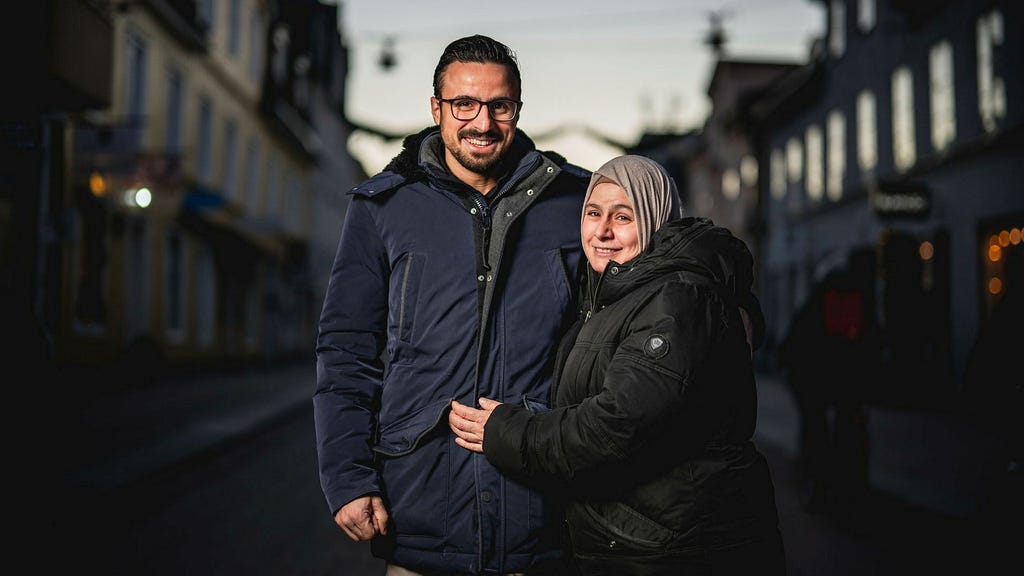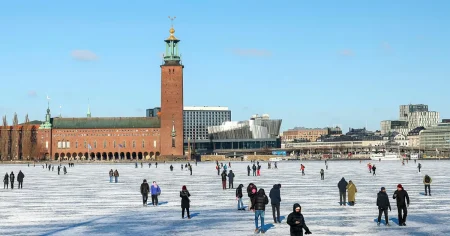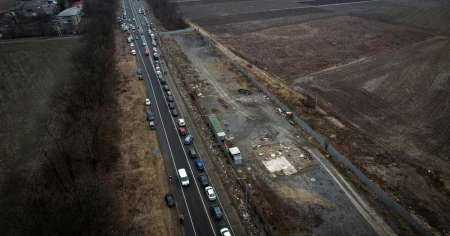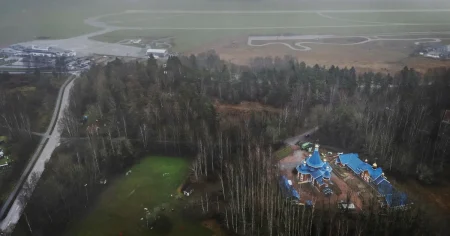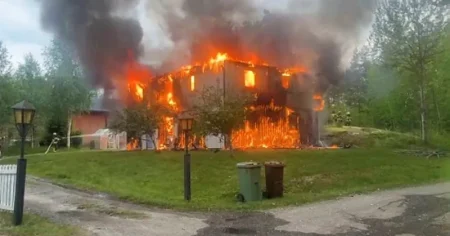The year 2015 marked a harrowing peak in the Syrian Civil War, forcing countless families to flee their homes and seek refuge in countries like Sweden. Among them were individuals like Amthal Tert, a 30-year-old Syrian who, along with many others, found a new life far from the ravages of war. Though geographically distant, the emotional connection to their homeland remained strong, a bond that intensified in recent weeks as dramatic events unfolded in Syria. The resurgence of conflict and political upheaval has brought a wave of anxiety and fear for the safety and future of loved ones left behind, as well as for the stability of the region. Tert’s words, ”I think we are all afraid of the chaos that will come now,” reflect a shared apprehension among Syrian refugees, a constant worry that permeates their lives even amidst the safety of their new homes. Yet, alongside this fear, there exists a resolute conviction that no matter how tumultuous the future may be, it cannot surpass the horrors endured under the Assad regime. This sentiment resonates deeply within the refugee community, a testament to the profound suffering experienced under authoritarian rule.
The weight of displacement rests heavily on Syrian refugees, a burden compounded by the ongoing instability in their home country. They grapple not only with the challenges of integrating into a new society – learning a new language, navigating cultural differences, and rebuilding their lives – but also with the persistent emotional toll of witnessing their homeland’s continuing struggles. News reports, social media updates, and frantic calls from family members paint a vivid picture of the escalating crisis, fueling a constant state of worry and uncertainty. The distance amplifies their sense of helplessness, creating a profound disconnect between their physical safety and the emotional turmoil tied to their homeland’s fate. For many, the trauma of war, the loss of loved ones, and the memories of violence continue to haunt them, exacerbated by the unfolding events back home. This complex interplay of past trauma and present anxieties creates a challenging emotional landscape for Syrian refugees, impacting their ability to fully embrace their new lives.
The unfolding crisis in Syria also sparks complex reflections on the past. For many refugees, the resurgence of violence reopens old wounds and brings back memories of the horrors they fled. The fear of history repeating itself is palpable, particularly the fear that the hard-won progress towards peace and stability might be undone. The stories of displacement, loss, and struggle are not just historical accounts; they are lived experiences that shape their present perspectives. These experiences fuel a strong desire for a better future for Syria, a future free from the oppression and violence that forced them to leave. The yearning for peace and justice fuels their ongoing engagement with the Syrian crisis, even from afar. They remain actively involved in advocating for their homeland, supporting humanitarian efforts, and raising awareness about the plight of those still trapped in the conflict.
Amthal Tert’s powerful statement, ”Nothing can be worse than al-Assad’s rule. Nothing,” underscores the depth of suffering endured under the Syrian regime. It speaks to a collective experience of oppression, violence, and the systematic denial of basic human rights. This sentiment echoes throughout the Syrian refugee community, serving as a grim reminder of the conditions that forced them to flee. It’s a testament to the resilience of the human spirit that, despite the trauma experienced, there remains a flicker of hope for a better future. This hope is not merely a passive wish; it is a driving force that compels them to advocate for change, to support their fellow Syrians, and to work towards a future where such suffering is never repeated.
The ongoing crisis in Syria serves as a stark reminder of the human cost of war and political instability. The plight of Syrian refugees highlights the urgent need for international cooperation and humanitarian assistance. Beyond providing immediate relief for those displaced, there’s a critical need to address the root causes of the conflict and work towards a sustainable solution that ensures the safety and dignity of all Syrians. The international community must prioritize diplomatic efforts to de-escalate the violence, protect civilians, and create conditions for a peaceful transition towards a more inclusive and democratic governance. Supporting the resilience and self-reliance of Syrian refugees is also crucial, empowering them to rebuild their lives and contribute to their host communities.
The stories of Syrian refugees, like Amthal Tert, are not just tales of displacement and loss; they are narratives of resilience, courage, and unwavering hope. They remind us of the enduring strength of the human spirit in the face of adversity. Their experiences underscore the importance of empathy, compassion, and a commitment to upholding human rights for all. As the crisis in Syria continues to unfold, the international community must stand in solidarity with Syrian refugees and work towards a future where they can finally return home to a safe, peaceful, and prosperous Syria. Their hopes and dreams for a better future must not be forgotten, and their voices must be heard and amplified in the ongoing quest for peace and justice.





